India-Pakistan: A tactical response
Pakistan's barbaric act of beheading an Indian soldier cannot be dealt in the same coin by a civilized country. A tactical, passive-aggressive response along a new front is the need of the hour.
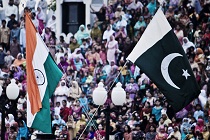 Courtesy: Zach Zalium/Flickr
Courtesy: Zach Zalium/Flickr
Pakistan's barbaric act of beheading an Indian soldier cannot be dealt in the same coin by a civilized country. A tactical, passive-aggressive response along a new front is the need of the hour.
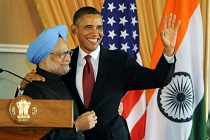 Courtesy: Prime Minister's Office
Courtesy: Prime Minister's Office
Although the India-U.S. relationship has seen steady improvement over the past few years, it hasn’t garnered the amount of high-level attention necessary to actualise the massive potential of this liaison. What are the key areas both the nations need to focus on, to achieve outputs for maximum mutual benefit?
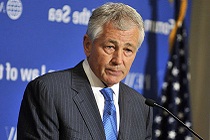 Courtesy: U.S. Department of Defense
Courtesy: U.S. Department of Defense
The nomination of Chuck Hagel for the post of the U.S. Defense Secretary has garnered severe criticism from Israel and the Jewish lobby. Given the geopolitical changes unfolding in the Middle East and the rest of Asia, what will Hagel’s assumption of office mean for Israel, India and the rest of the world?
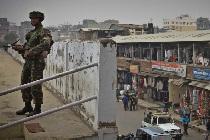 Courtesy: lecercle/Flickr
Courtesy: lecercle/Flickr
The Armed Forces Special Powers Act, introduced decades ago in India’s northeastern states and Kashmir to control militancy and turbulence, often has undemocratic side-effects. By the government’s own account, the situation in the northeast has improved. Why is the Act still in place, despite calls for a repeal?
 Courtesy: Officer/WikimediaCommons
Courtesy: Officer/WikimediaCommons
U.S. Senator John Kerry will officially take office as the Secretary of State, later this month, replacing Hillary Clinton. Given his background of foreign policy, and his proven competency in related matters, what can India and South Asia look forward to, during his term in his new office?
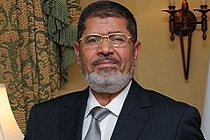 Courtesy: Cyfraw/WikimediaCommons
Courtesy: Cyfraw/WikimediaCommons
Despite heavy opposition from several factions, Egyptian President Mohamed Morsi’s propositions for altering the constitution have been approved. Although the alterations have democratic elements, the liberals and secularists bear responsibility in taking forward Egypt’s journey to complete democracy.
India’s governance and newest social revolution, led by the country’s youth and middle class, is being watched by the world. But will the incumbent government be able to respond with emotion and convert the movement into tangible policies and institutionalise them? Manjeet Kripalani blogs
 Courtesy: Shwkyn231/Flickr
Courtesy: Shwkyn231/Flickr
The year 2012 has been a busy one for foreign policy: from escalating disputes in the South China Sea to alternate financial instruments from the emerging world. India’s foreign policy too has its shown strengths and weaknesses. We present our top foreign policy Hotspots, Sweet spots and Blind spots for 2012.
Although there has been a steady growth of the India-Japan bilateral relationship, the full potential of this association remains untapped. Why is it increasingly imperative for New Delhi and Tokyo to enhance their bilateral relations for mutual benefit? Sanjeev Sinha blogs
In the past few years, the political map of Antarctica, a region rich in mineral-fuel resources, has changed immensely. How can the ongoing geopolitical polarization in this region have unfavourable global effects in the long run?